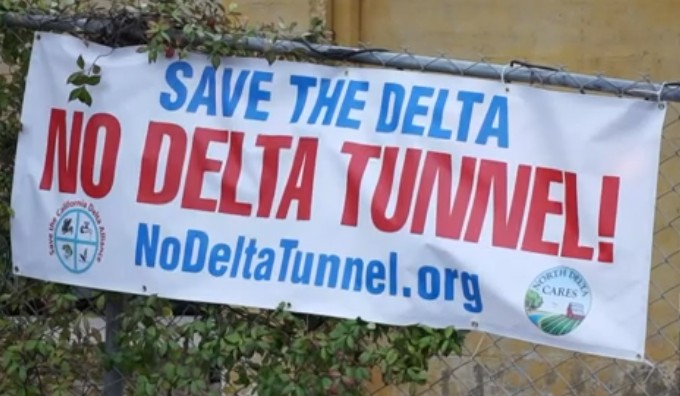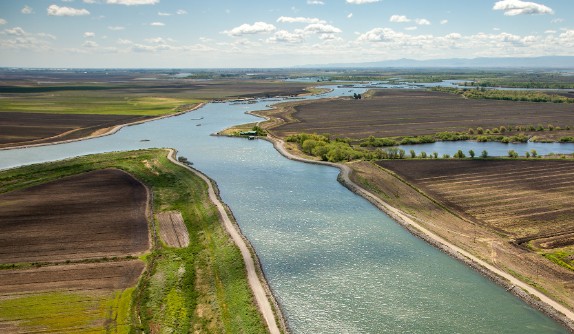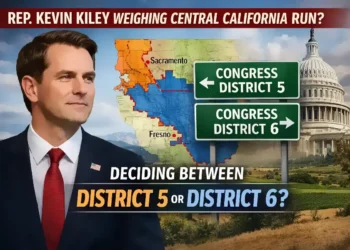El Dorado County (Feb 29, 2024) – In the picturesque expanse of the Sacramento-San Joaquin River Delta, a $16-billion water tunnel proposal is stirring up a contentious battle, pitting environmental concerns against the need for infrastructure to alleviate Southern California water scarcity.
California Governor Gavin Newsom champions the Delta Conveyance Project, envisioning a 45-mile tunnel to channel water from Northern California to the drought-prone south. While state officials argue it’s a necessary step to fortify the water supply and protect against climate-induced challenges, opponents fear it will exacerbate ecological fragility in an already stressed delta.
The proposed tunnel, a relic of past failed attempts, is part of Newsom’s strategy to address the looming 10% water supply loss projected by 2040. The recent downsizing to a single tunnel has brought it closer to reality, backed by a $16-billion price tag.
However, the project faces significant hurdles. Despite reassurances of efficiency and reduced environmental impact, opponents, including environmental groups and tribal organizations, are actively contesting it in court. They argue that the tunnel will harm the delta’s delicate ecosystem, worsen water quality, and endanger endangered species.
The state contends that the tunnel is not just about securing more water but also ensuring the aging water system’s resilience against seismic risks. With the Sacramento-San Joaquin Delta vulnerable to levee failures, the project aims to mitigate potential water contamination during earthquakes.
While proponents, like Graham Bradner, see the tunnel as essential for California’s water future, critics, including Barbara Barrigan-Parrilla of Restore the Delta, suggest that alternatives like levee fortification and natural floodplain restoration should take precedence.
In the ongoing tug-of-war, the project’s fate hinges on gaining support from local water suppliers and the public. With legal challenges mounting and concerns about its ecological impact intensifying, the Delta Conveyance Project remains a symbol of the complex balancing act between California’s thirst for water and its commitment to environmental sustainability.
Community Concerns and Legal Battles Surround Newsom’s Delta Tunnel Proposal
As the Delta Conveyance Project inches closer to reality, local communities voice strong opposition. Residents in disadvantaged delta areas, already grappling with air quality and water contamination issues, fear the construction’s pollution and the loss of prime farmland during the estimated 12-year project timeline.
Signs proclaiming “Save the Delta” and “No Tunnel” dot the landscape, reflecting the sentiment of residents who view the tunnel as a potential catastrophe. A recent survey revealed 71% of respondents in delta communities believe the project offers no benefits, emphasizing the grassroots resistance.

Environmental and tribal organizations, including Restore the Delta, San Francisco Baykeeper, and the Shingle Springs Band of Miwok Indians, have filed lawsuits against the project. They argue violations of the California Environmental Quality Act and potential harm to marginalized communities, endangered fish populations, and wildlife.
Tribes, such as the Shingle Springs Band of Miwok Indians, emphasize the cultural significance of the delta and express dissatisfaction with the project’s outreach efforts. Malissa Tayaba, Vice Chair of the tribe, notes the tunnel’s impact on culturally significant areas and accuses the Newsom administration of overlooking Indigenous voices.
As legal battles intensify, the fate of Newsom’s ambitious tunnel project remains uncertain. The clash between environmental preservation and water security underscores the intricate challenges California faces in navigating its future water landscape.
Closing Thoughts: A Tunnel Through Time – Balancing Water Security and Ecological Preservation in California
California’s water future hangs in the balance as Governor Newsom’s $16-billion Delta Conveyance Project faces fierce opposition. In a state grappling with the specter of climate change, seismic threats, and water scarcity, the proposed tunnel symbolizes the delicate dance between securing vital resources and preserving a fragile ecosystem.
As legal battles unfold and communities rally against potential environmental devastation, the fate of the Delta Conveyance Project remains uncertain. Will California pave the way for a groundbreaking water infrastructure or find alternative solutions that prioritize ecological well-being? The answer lies in the ongoing dialogue between policymakers, environmentalists, and the communities directly impacted by the tunnel’s potential construction.










